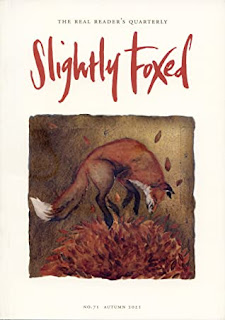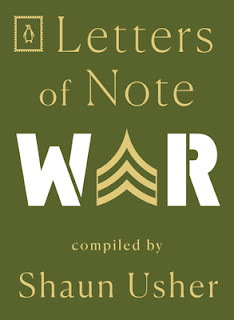OK, bummer. I've been staring at the computer screen because I feel like
Unpunished Murder is so important that I want to get it right, but the pressure is making me draw a blank. So, I'm going to make this review a self-interview to see if I can get the words out. Today, I will be interviewed by a Sharpie pen. It's the handiest thing.
Sharpie Pen (SP): I'd rather be writing.
Bookfool (BF): Me, too, but it's not going well.
SP: Well, then, shall we?
BF: Yes, please.
SP: Tell me about
Unpunished Murder. Who was massacred and where is Colfax?
BF: Colfax is a town in Louisiana that was founded in 1869. In 1873, a white supremacist militia attacked the town, the home of former slaves or "freedmen". About 100 blacks and 3 of the white militia members were killed, most of the blacks gunned down after they surrendered.
SP: And, why are you having so much trouble describing this book?
BF: I think I waited a little too long and should have written about it immediately, like the moment I closed the book. Having said that, the book describes a fairly complex background situation.
SP: What was complex about it?
BF: It goes into details about Reconstruction and the balance of political parties, the choice of a white supremacist for vice president, the slow changeover from Abraham Lincoln's party to domination by the Democrats (who were then the party of white supremacy) and how that change of party balance altered the course of Reconstruction, closed off legal rights that freedmen had obtained, and led to the rise of white supremacist groups and state laws that restricted black rights. It goes into some detail about states' rights and laws versus federal and the why federal law was not always enforced.
Basically, the slaves were freed and the Southern whites were angry but Reconstruction was on the road to being a positive thing and blacks were happily exercising their new rights. And, then the political pendulum swung, rights were suppressed through violence and intimidation, and lawlessness and cruelty took over. I guess it's a bit complex to me because so much of it is new. I'm a fan of history but I really never have read about Reconstruction, apart from snippets saying that it was a disaster. The author argues that Reconstruction was not quite what many historians have claimed. I feel like I need to reread it for the details to fully sink in, to be honest.
SP: What's the point of the book?
BF: The dual goal is both to spread the true story about what happened in Colfax (an incident I, for one, had never heard of) and to set the record straight about the fact that this particular incident was stone cold murder. Toward the end of the book, the author talks about how the slaughter of 150 black men was reframed as a riot, the whites declared heroes, and even a monument dedicated to the white murderers placed in the town.
SP: What else does it describe?
BF: It goes into great detail about how and why only a few of the men responsible for the slaughter were tried and then, eventually, nobody was punished. One man even went on to murder again and was still not brought to justice. In fact, he ended up being quite prosperous.
SP: You mentioned in one of your Monday Malarkey posts that you didn't know the correct age range for
Unpunished Murder. Have you found out who the book is geared toward?
BF: Yes, the author kindly wrote to me after he happened across my post and he clarified the age range. He said it's geared to high school, "maybe higher middle school for more advanced readers".
SP: You found it a challenging read. Why?
BF: Two reasons. So much of the information was new to me that I had to take my time to keep the political strands straight. I don't know if my education in history was awful or I just memorized instead of absorbing the information, as a kid, but till recently I'd forgotten that the parties flipped and Democrats used to be dominated by white supremacists. I found my brain didn't want to accept Republicans as the people who were trying to make sure freedmen were able to function in white society -- attend schools with whites, vote, etc. Anyway, that was the first reason.
Reason 2 is the fact that it's such a distressing story. Much like women's history (men getting credit for women's accomplishments), Black history has been rewritten or suppressed for far too long. It was only a handful of years ago that I found out about another incident, the so-called Tulsa Race Riot. That, too, was not really a riot at all but a slaughter. There are loads of contemporary illustrations and some of them describe blacks in horrifyingly demeaning terms. Reading about cruelty is miserable. Realizing that we haven't progressed that much is even more deflating. Now and then, I had to put the book down and just catch my breath. But, toward the latter half of the book I was so gripped by the story of how a bunch of men got away with murder that I stopped setting it down and read late into the night. Obviously, I knew how it was going to end (thank you, obvious title) but I had to know how and why. I knew I wouldn't get to sleep till I'd finished.
SP: So, what's your recommendation?
BF: I
highly recommend Unpunished Murder and feel like it's a very important book -- one that needs to be taught, shared, and talked about. I'll pass my copy on to a school so that more people will have access to it because I feel like it's so necessary for as many people as possible to really understand this terrible tale from our American history.
SP: Any final remarks?
BF: Here's a website where you can read a little about the Colfax Massacre:
BlackPast.org - The Colfax Massacre
Any mistakes in my review are my own. In spite of living for decades in a city whose downfall was an important turning point in the Civil War, I honestly haven't read much about the Civil War. My lack of understanding was definitely brought home while I was reading
Unpunished Murder.
SP: Thanks for the fun. I'm going to go hang out with a scratch pad and some googly eyes, now.
BF: These self-interviews really expose me as the knife in the drawer that fell into the garbage disposal, don't they? Thanks Sharpie Pen. You're an inanimate object and yet you managed to help. Amazing.
©2018 Nancy Horner. All rights reserved. If you are reading this post at a site other than Bookfoolery or its RSS feed, you are reading a stolen feed. Email bookfoolery@gmail.com for written permission to reproduce text or photos.












 Water Tales by Alice Hoffman
Water Tales by Alice Hoffman